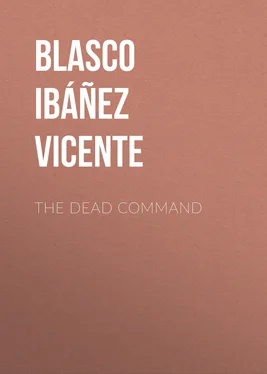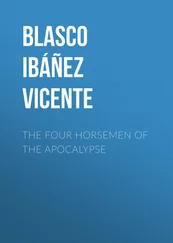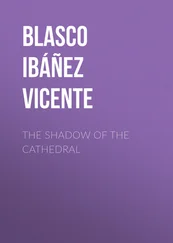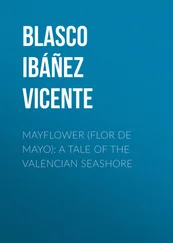Vicente Blasco Ibáñez - The Dead Command
Здесь есть возможность читать онлайн «Vicente Blasco Ibáñez - The Dead Command» — ознакомительный отрывок электронной книги совершенно бесплатно, а после прочтения отрывка купить полную версию. В некоторых случаях можно слушать аудио, скачать через торрент в формате fb2 и присутствует краткое содержание. Жанр: foreign_prose, foreign_antique, на английском языке. Описание произведения, (предисловие) а так же отзывы посетителей доступны на портале библиотеки ЛибКат.
- Название:The Dead Command
- Автор:
- Жанр:
- Год:неизвестен
- ISBN:нет данных
- Рейтинг книги:5 / 5. Голосов: 1
-
Избранное:Добавить в избранное
- Отзывы:
-
Ваша оценка:
- 100
- 1
- 2
- 3
- 4
- 5
The Dead Command: краткое содержание, описание и аннотация
Предлагаем к чтению аннотацию, описание, краткое содержание или предисловие (зависит от того, что написал сам автор книги «The Dead Command»). Если вы не нашли необходимую информацию о книге — напишите в комментариях, мы постараемся отыскать её.
The Dead Command — читать онлайн ознакомительный отрывок
Ниже представлен текст книги, разбитый по страницам. Система сохранения места последней прочитанной страницы, позволяет с удобством читать онлайн бесплатно книгу «The Dead Command», без необходимости каждый раз заново искать на чём Вы остановились. Поставьте закладку, и сможете в любой момент перейти на страницу, на которой закончили чтение.
Интервал:
Закладка:
In their happy intoxication Munich and the hotel in which they had seen each other as strangers seemed to them offensive. They felt the need of flying far away, where they could make love freely, and one day they found themselves in a port which had a stone lion at its entrance, while beyond spread the liquid surface of an immense lake which mingled with the sky on the horizon. They were in Lindau. One steamer could convey them to Switzerland, another to Constance, but they preferred the tranquil German city of the famous Ecumenical Council, establishing themselves in the Island Hotel, an ancient Dominican Monastery.
Febrer was stirred as he contemplated this epoch, the happiest of his existence! Mary continued for him ever an original woman, in whom there was always something left to conquer; tolerant at certain hours, repellant and austere throughout the rest of the day. He was her lover, and yet she would not permit the slightest familiarity, nor any liberty which might reveal the confidence of their common life. The least allusion to their intimacy caused her to flush in protest. "Shocking!" Yet, every morning at daybreak Febrer sneaked into his room along the corridors of the old convent, unmade his bed so that the servants would not suspect, and he would show himself on the balcony. The birds were singing in the tall rose bushes in the garden below his feet. Beyond, the immense sheet of Lake Constance was flushing with purple tints caught from the rising sun. The first fishing barks were cleaving the orange tinted waters; in the distance sounded the cathedral bells, softened by the damp, morning breeze; the cranes began to creak on the quay where the waters cease to be a lake, and narrowing into a channel become the river Rhine; the footsteps of the servants and the swish of cleaning startled the monastic cloister with the noises of the hotel.
Near the balcony, adjoining the wall, and so close that Jaime could touch it with his hand, was a small tower with a slate roof and with ancient coats of arms on the circular wall. It was the tower in which John Huss had been imprisoned before going to the stake.
The Spaniard thought of Mary. At this time she must be in the perfumed shadows of her room, her blonde head clasped in her arms, sleeping her first real sleep of the night, her tired body still vibrant from fatigue. Poor John Huss! Febrer sympathized with him as if he had been his friend. To burn him in the presence of such a beautiful landscape, perhaps on a morning like this! To cast one's self into the wolf's mouth, and to give up one's life over the question whether the Pope were good or bad, or whether laymen should receive the sacrament with wine the same as priests! To die for such absurdities when life is so beautiful and the heretic might have enjoyed it so richly with any of the plump-breasted, big-hipped blonde women, friends of the cardinals, who witnessed his torture! Unhappy apostle! Jaime ironically pitied the simplicity of the martyr. He looked at life through different eyes. Viva el amor! Love was the only thing worth while in life.
They remained nearly a month in the ancient episcopal city, strolling out in the gloaming through the lonely, grass-grown streets with their crumbling palaces of the time of the Council; floating with the current down the river Rhine along its forest-clad banks; stopping to look at the tiny houses with red roofs and spacious arbors beneath which sang the bourgeoisie, stein in hand, with the Germanic joy of a subchanter, grave and reposeful.
From Constance they passed on to Switzerland and afterward to Italy. They traveled together for a year viewing landscapes, seeing museums, visiting ruins, the windings and sheltered nooks in which Jaime made use of for kissing Mary's pearly skin, reveling in the rush of color and the gesture of annoyance with which she protested "Shocking!"
The old traveling companion, unconscious as a suitcase of the points of interest in their journey, continued making the cloak of Irish point, beginning in Germany, and working at it while crossing the Alps, along the whole length of the Apennines, and in sight of Vesuvius and Ætna. Unable to talk with Febrer, who spoke no English, she greeted him with the yellowish glitter of her teeth and returned to her task, forming a conspicuous figure in the hotel lobbies.
The two lovers spoke of marriage. Mary summed up the situation with energetic decision. She need only write a few lines to her father. He was very far away, and besides she never consulted him in regard to her affairs. He would approve whatever she did, sure of her wisdom and prudence.
They were in Sicily, a land which reminded Febrer of his own island. The ancient members of his family had been here also, but with cuirasses on their breasts, and in worse company. Mary spoke of the future, arranging the financial side of the anticipated partnership with the practical sense of her race. It did not matter to her that Febrer had little fortune; she was rich enough for both; and she enumerated her worldly goods, lands, houses, and stocks like an administrator with accurate memory. On their return to Rome they would be married in the evangelical chapel and also in a Catholic church. She knew a cardinal who had arranged for her an audience with the Pope. His Eminence would manage everything.
Jaime passed a sleepless night in a hotel in Syracuse. Marriage? Mary was agreeable; she made life pleasant, and she would bring with her a fortune. But should he really marry her? Then the other man began to annoy him, the illustrious shade which had appeared in Zurich, in Venice, in every place visited by them which held memories of the maestro's past. Jaime would grow old, and music, his formidable rival, would be ever fresh. In a little while, when marriage should have robbed his relations of the charm of illegality, of the delight of the prohibited, Mary would discover some orchestra leader who bore a still greater resemblance to the other man, or some ugly violinist with long hair and possessed of youth who would remind her of Beethoven in his boyhood. Besides, he was of different race, different customs and passions; he was tired of her shamefaced reserve in love, of her resistance to final submission which had pleased him at first, but which had come at last to bore him. No; there was yet time to save himself.
"I regret it on account of what she will think of Spain. I regret it on account of Don Quixote," he said to himself while packing his suitcase one morning at sunrise.
He fled, losing himself in Paris, where the English woman would never seek him. She hated that ungrateful city for its hissing of Tannhäuser many years before she was born.
Of these relations, which had lasted a year, Jaime cherished only the memory of a felicity, increased and sweetened by the passing of time and by a lock of golden hair. Then, too, he must have somewhere among his papers, guide books, and post cards, lying forgotten in an old secretary in the great house, a photograph of the feminine doctor of music, strangely adorable in her long-sleeved toga with a square plate-like cap from which hung a tassel.
Of the rest of his life he remembered little; a void of tedium broken only by monetary worries. The administrator was slow and grudging in sending his remittances. Jaime would ask him for money and he would reply with grumbling letters, telling of interest which must be met, of second mortgages on which he could barely realize a loan, of the precariousness of a fortune in which nothing was left free of incumbrance.
Febrer, believing that his presence might disentangle this wretched situation, made short trips to Majorca, which always resulted in the sale of property, yielding him scarcely enough money to take flight again, heedless of his administrator's advice. Money aroused in him a smiling optimism. Everything would turn out all right. As a last resort he counted on recourse to matrimony. Meanwhile,—he would live!
Читать дальшеИнтервал:
Закладка:
Похожие книги на «The Dead Command»
Представляем Вашему вниманию похожие книги на «The Dead Command» списком для выбора. Мы отобрали схожую по названию и смыслу литературу в надежде предоставить читателям больше вариантов отыскать новые, интересные, ещё непрочитанные произведения.
Обсуждение, отзывы о книге «The Dead Command» и просто собственные мнения читателей. Оставьте ваши комментарии, напишите, что Вы думаете о произведении, его смысле или главных героях. Укажите что конкретно понравилось, а что нет, и почему Вы так считаете.












